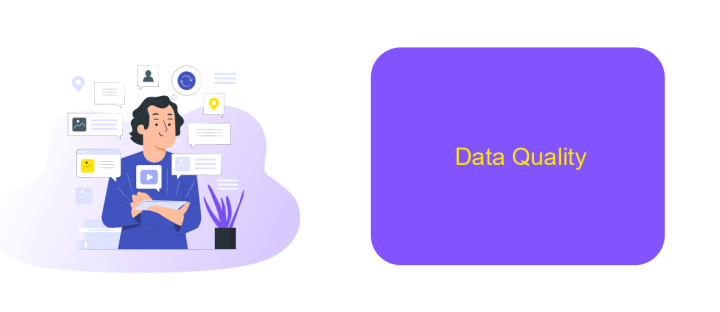Data Integration Capabilities
Data integration capabilities are essential for modern businesses seeking to harness the full potential of their data. By seamlessly combining information from various sources, organizations can achieve a unified view, enhance decision-making, and drive operational efficiency. This article explores the key aspects of data integration, its benefits, and the technologies that enable businesses to stay competitive in an increasingly data-driven world.
Data Ingestion
Data ingestion is a critical component of data integration, enabling organizations to collect and import data from various sources into a centralized system for analysis and processing. This process ensures that data is readily available and up-to-date, facilitating better decision-making and operational efficiency.
- Automated data collection from multiple sources.
- Real-time data streaming for immediate availability.
- Support for various data formats and protocols.
- Scalability to handle large volumes of data.
Tools like ApiX-Drive simplify the data ingestion process by providing seamless integration capabilities. ApiX-Drive allows businesses to automate the import of data from diverse sources, including APIs, databases, and cloud services, into their data warehouses or analytics platforms. This automation minimizes manual effort and reduces the risk of errors, ensuring that data is consistently accurate and up-to-date.
Data Transformation

Data transformation is a crucial aspect of data integration that involves converting data from its original format into a format that is compatible with the target system. This process ensures that data can be accurately and efficiently utilized across various platforms, enhancing the overall quality and consistency of the data. It includes tasks such as data cleansing, normalization, aggregation, and enrichment, which help in eliminating redundancies and discrepancies in the data.
One of the effective tools for managing data transformation is ApiX-Drive, a service that simplifies the process of integrating and transforming data between different systems. ApiX-Drive allows users to set up automated workflows that can handle complex data transformation tasks without requiring extensive coding knowledge. By utilizing such services, organizations can streamline their data integration processes, reduce manual efforts, and ensure that their data is always in the right format for analysis and decision-making.
Data Storage

Data storage is a critical component of data integration, ensuring that data is efficiently collected, stored, and managed from various sources. Effective data storage solutions must be scalable, secure, and capable of handling diverse data types and formats. These solutions facilitate seamless data retrieval and support advanced analytics and reporting.
- Scalability: Ensure the storage system can grow with your data needs.
- Security: Implement robust security measures to protect sensitive data.
- Compatibility: Support various data formats and integration with other systems.
- Performance: Optimize for fast data retrieval and processing.
- Backup and Recovery: Regularly backup data and have a recovery plan in place.
Utilizing integration platforms like ApiX-Drive can significantly streamline the data storage process. ApiX-Drive offers automated data synchronization between different systems and storage solutions, ensuring that your data remains up-to-date and accessible. This service simplifies the configuration of integrations, reducing the time and effort required to manage data storage effectively.
Data Quality

Data quality is a critical aspect of any data integration process, ensuring that the information being shared across systems is accurate, consistent, and reliable. Poor data quality can lead to erroneous insights, faulty decision-making, and operational inefficiencies, making it essential to implement robust data quality measures.
Effective data quality management involves several key practices, such as data cleansing, validation, and enrichment. These practices help in identifying and correcting errors, standardizing data formats, and filling in missing information. Additionally, automated tools and services can significantly enhance the efficiency and accuracy of these processes.
- Data cleansing: Removing duplicate and irrelevant data.
- Data validation: Ensuring data meets predefined standards.
- Data enrichment: Adding missing information to datasets.
- Automated tools: Utilizing services like ApiX-Drive for seamless data integration and quality control.
By leveraging advanced data integration platforms such as ApiX-Drive, organizations can automate and streamline their data quality processes. These platforms offer robust features for data mapping, transformation, and real-time validation, ensuring that the integrated data is both high-quality and actionable. This not only saves time but also enhances the overall reliability of the integrated systems.
Data Security
Ensuring data security is paramount when integrating various data sources. Implementing robust encryption protocols, both during data transmission and at rest, is essential to protect sensitive information from unauthorized access. Regularly updating security measures and conducting vulnerability assessments help in identifying and mitigating potential threats. Moreover, employing multi-factor authentication (MFA) adds an extra layer of security, ensuring that only authorized personnel can access critical data.
When configuring integrations, using reliable services like ApiX-Drive can significantly enhance data security. ApiX-Drive offers secure data transfer mechanisms and complies with industry-standard security practices, ensuring that your data remains protected throughout the integration process. Additionally, ApiX-Drive provides detailed logging and monitoring features, allowing for real-time tracking of data flows and immediate detection of any anomalies. By leveraging such services, organizations can maintain a high level of data security while seamlessly integrating their data sources.
FAQ
What is data integration?
Why is data integration important for businesses?
What are the common challenges in data integration?
How can businesses automate data integration processes?
What should be considered when choosing a data integration tool?
Time is the most valuable resource in today's business realities. By eliminating the routine from work processes, you will get more opportunities to implement the most daring plans and ideas. Choose – you can continue to waste time, money and nerves on inefficient solutions, or you can use ApiX-Drive, automating work processes and achieving results with minimal investment of money, effort and human resources.

